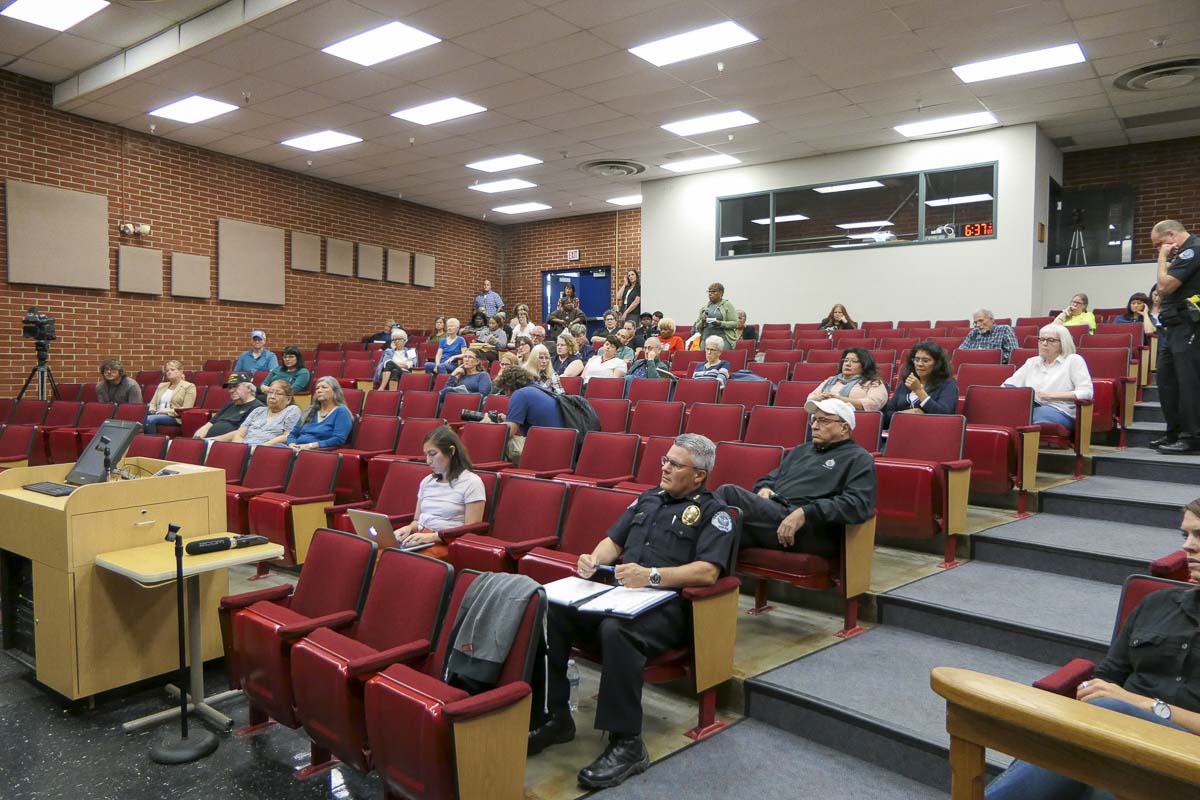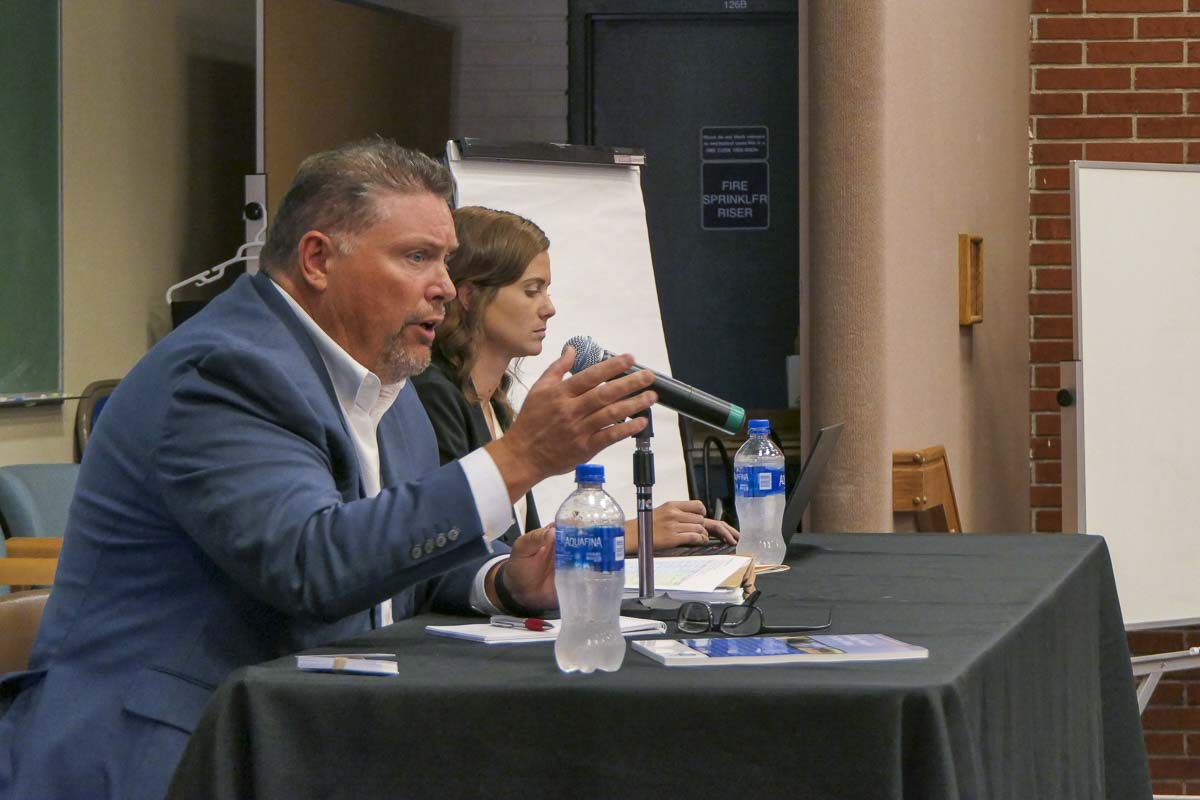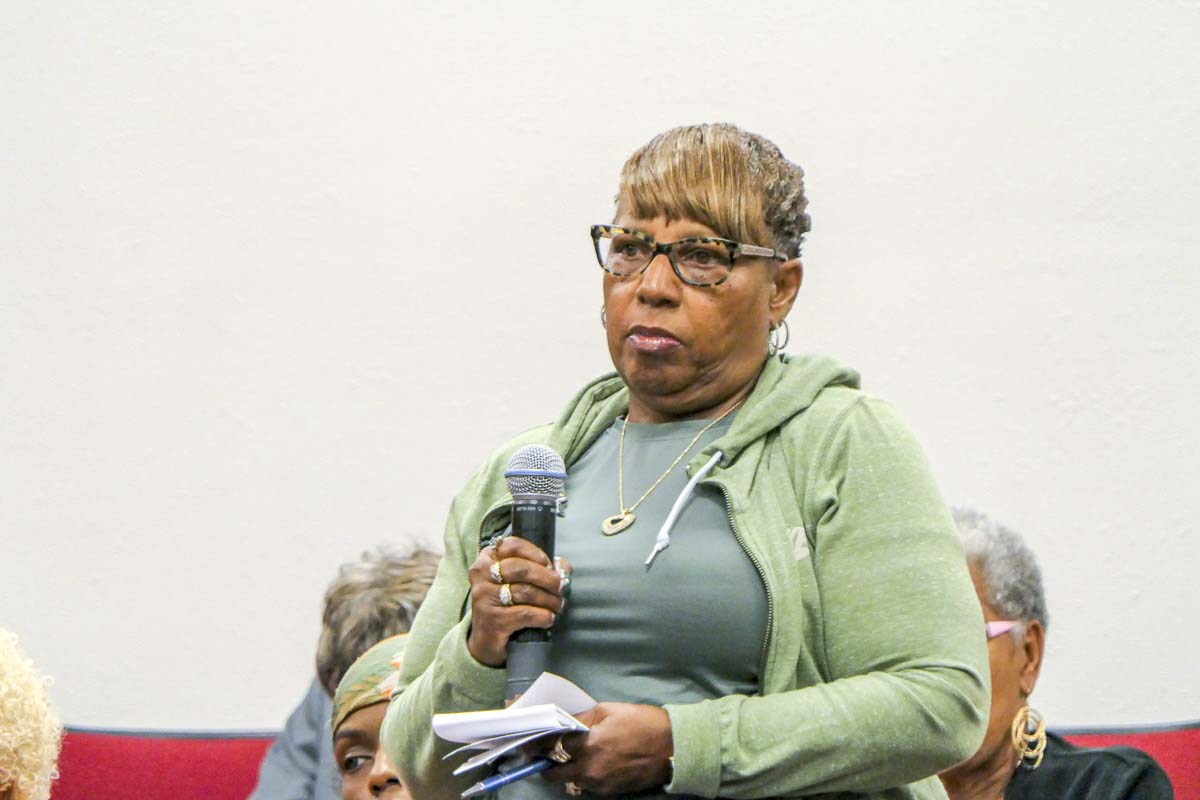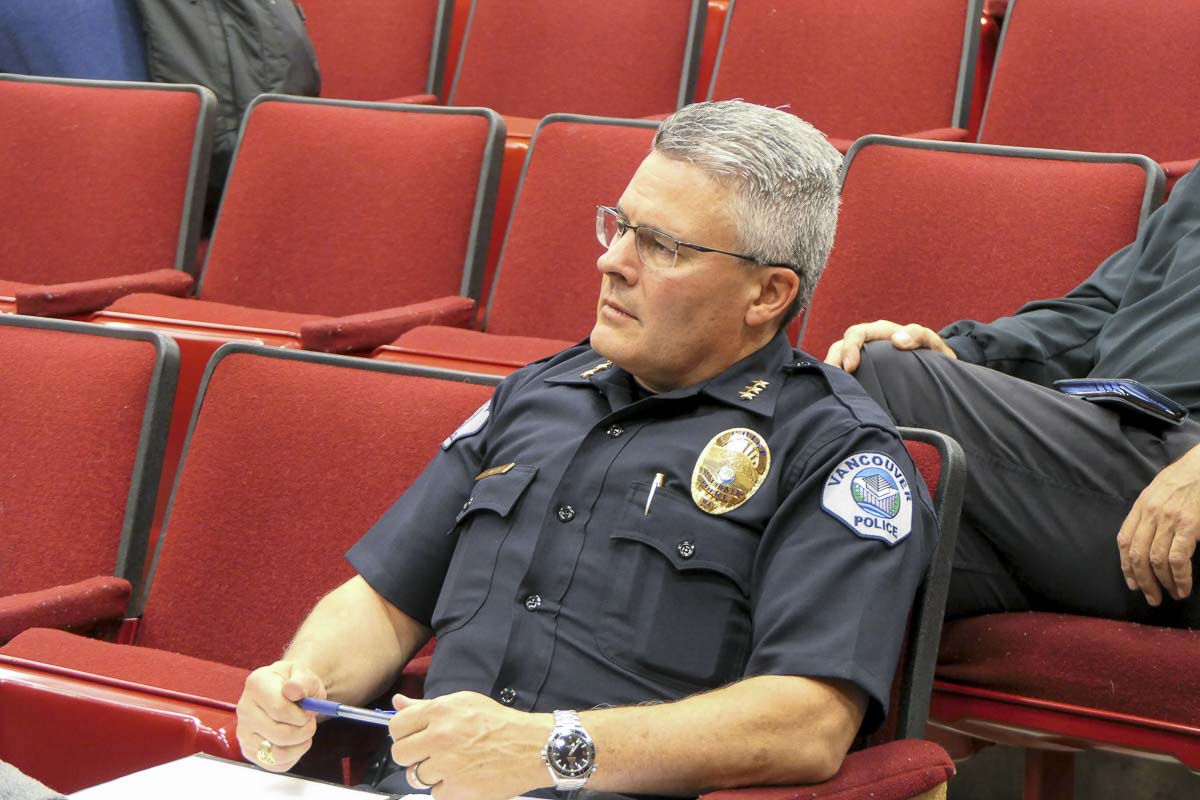The department is working with an outside agency to review training and procedures in the wake of recent officer-involved shootings
VANCOUVER — Emotions remain raw for Vancouver’s black community months after a series of officer-involved shootings rocked the city. That was abundantly clear on Wednesday night as Vancouver Police Chief James McElvain introduced members of the Police Executive Research Firm (PERF) a nonprofit law enforcement membership organization that assists departments in examining policies and procedures.

The city signed a contract with PERF on August 1 as part of a police policy review. The group has three representatives in Vancouver meeting with community members, city leaders, and going along with officers during their daily work. Four other members are looking over the agency’s use of force policies from PERF’s headquarters in Washington, D.C.
Tom Wilson, director of PERF’s Center for Applied Research and Management, said their goal was to examine the use of force culture within Vancouver Police Department (VPD), look over training and policy, tools and tactics, and how the use of force incidents were investigated within the department.
“It’s an opportunity for us to fix things,” said Wilson, “sometimes reactively, but we hope most of the time proactively.”
Wilson noted that PERF has focused primarily on use of force incidents since the shooting of Michael Brown in Ferguson, Missouri in 2014.
“As an organization, we believe in being totally frank with what we’ve learned across the country,” said Wilson, who noted that they have provided management studies of over 250 police departments across the United States since their founding in 1976.
“Kudos to the Vancouver Police Department, to the chief, for being willing to do this,” said Wilson, “because when you’re a police agency and you allow an outside entity to come in and look at the way you do business, then you are willing to be challenged and you’re willing to learn.”

The review by PERF comes after four officer-involved shootings in the first few months of 2019. In February, police fired on a murder suspect on a freeway in Portland. Two weeks later, 16-year-old Clayton Joseph was shot outside a Vancouver apartment after refusing to drop a knife. The officers involved were cleared last month. On February 28, Michael Eugene Pierce was killed by police outside of the Share House in downtown Vancouver after brandishing what turned out to be a replica firearm. Relatives say Pierce was suffering from mental illness. And on March 7, detectives shot and killed 43-year old Carlos Hunter during a traffic stop. An investigation showed Hunter had a stolen handgun with him, and had attempted to reach for it before he was tased and then shot.
“How can there be an instance where people are allowed to shoot a man 16 times while he is still seatbelted in his car,” wondered Carlos’ sister Nickeia Hunter at Wednesday’s meeting. “If you look at the caucasian suspects that are taken in, that have similar criminal histories, that are pointing guns at officers, that are charging and attacking officers, they’re still alive. They were arraigned, and they’re standing their day in court. My brother didn’t get that opportunity.”
Wilson noted his successor, Dr. Laurie Friedel, had helped to create a course on implicit bias in police work, which is now commonly used by police departments across the country to train officers.
“What we’re trying to do is ensure that law enforcement has the best information that we can provide,” said Wilson. “Sometimes we can put these things together, and sometimes we talk about our response in a broader sense.”
Vancouver resident Daniella Jokela spoke up, saying that bias training doesn’t seem to be slowing the rate of officer-involved shootings of black men.
“I’m feeling a little bit skeptical,” said Danielle Jokela. “It feels a little bit like law enforcement investigating law enforcement.”
“All I can tell you with regards to that is the proof is in our work.” responded Wilson.
Wilson began his remarks praising Vancouver police and the city for bringing PERF in.
“That’s a statement to you, to your police leadership, to your city manager,” he said.
But the words fell short of easing the concerns of many in the audience.
“Do you have awards from the people of color whose communities were impacted that said that those reports changed things to the point that we felt safe?” challenged Cindi Fisher. “I haven’t heard anything, at all, about the voices of the people whose family members were silenced, and you were brought in at a hundred thousand or two-hundred thousand dollars. We’re talking about lives lost, never to be recovered again. And if your report can’t stop that, if your report can’t bring us to the point where we say ‘yes, what you’re doing makes a difference in our community,’ then your report means nothing to us.”
“As you, PERF, review the VPD’s use of force protocols, practices, procedures and trainings, know that Vancouver Police are doing many things right,” added Shareefah Hoover. “But also know that we are experiencing a system of disparate and dysfunctional policing in our city, and that is unacceptable.”

Others challenged McElvain’s earlier assertions in interviews following the shootings that his officers are among the best trained in the country. McElvain said he based that on his 33 years in police training before becoming chief of VPD.
“I may have a bias to what I think we can do,” added McElvain. “I think we do a good job. But please don’t hear, because I didn’t say that we couldn’t improve. Because I think we can improve upon what we do, and I am very concerned about your concerns as well.”
Pressed further on how his agency has handled investigations following the shootings, McElvain said he remains open to any review of their policies and training.
“If I wasn’t intent on doing something proactive about this, I wouldn’t have made the recommendation of doing this study,” said the chief. “I truly believe that we are an agency that is constantly looking for improvement.”
McElvain noted that the Washington State Criminal Justice Training Commission (CJTC) is also holding a series of public forums around the state as part of the implementation of the Law Enforcement Training and Community Safety Act, formerly known as I-940 and SHB 1064). Under the new law, agencies must create and adopt training requirements (including first aid), and establish criteria for independent investigations following an incidence of deadly force involving police.
CJTC is holding a forum in Vancouver on Sept. 24 from 5:30 to 7:30 p.m. at the Bridgeview Resource Center on 505 Omaha Way in Vancouver, hosted by the National Alliance on Mental Illness and Commission on Asian Pacific American Affairs.
“And the purpose of that meeting is to address independent investigations,” McElvain told the crowd, “so you’ll have an opportunity to talk about that very specifically.”

McElvain challenged the crowd at one point, saying that he isn’t aware of a training method that allows police to protect the public without ever using deadly force.
“In a day and age when we read in the newspaper and see in the media that people are going into businesses, going into churches, and killing other people,” said McElvain, “are we going to sit here and say that law enforcement should address that in some other manner than lethal force?”
“They’re not using it in the right way,” responded someone in the audience.
Another person asked if the bureau would return to collecting racial data during police responses, a function that was lost after Clark Regional Emergency Services Agency (CRESA) changed their dispatch system. McElvain said he has already requested that the option be added back in, and CRESA expects to have it functional again within a few months.
“While we collect data, we don’t analyze it on a regular basis,” said McElvain. “And I think that’s a mistake on our part. That’s a missed opportunity to provide better insight into the police department, and I fully expect that that’s going to be one of the recommendations that we’ll put those practices in place.”
The PERF review is expected to take approximately nine months, and McElvain promised that his office would present the findings to City Council and allow the public to view it all.
For those who were unable to attend Wednesday’s forum, you can still submit feedback to PERF via email at VPDReview@policeforum.org.
VPD also released links to information on disqualifications for police officer applicants, as well as the agency’s curriculum in response to questions during the forum.




